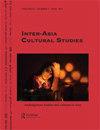Much ado about nothing: alley life, dwelling ethics, and environmentalism of life in Taiwan
IF 0.3
4区 社会学
Q4 ANTHROPOLOGY
引用次数: 0
Abstract
ABSTRACT This article examines alley life in three Taiwanese cities, demonstrating that the investigation and interpretation of those mundane everyday practices and events in these alley-places lead us to think about the ethics of everyday dwelling. This ethics, though mostly forgotten now in the Taiwanese public realm, was actually the center of attention in the 1990s when a concept was proposed about urban environmentalism that is significantly different from the current public perception of it. This form of environmentalism related to a new momentum for placemaking that was happening at that time nearly three decades ago and propagated across the island and into its alleys during the new millennium. Delving into alley places, this article shows how ordinary landscapes of proximity have turned into extraordinary lifeworlds for dwelling. To materialize this dwelling imaginary, this paper first addresses theories that seek to spatialize culture in order to identify these unexpected lifeworlds in their ordinary urban settings. Theorizing those tiny little places, often hidden in plain sight, brings back to the attention of researchers what I call dwelling ethics that characterizes quotidian judgments, choices, decisions, as well as its consequences. This paper concludes that conceptualizing dwelling ethics in the contemporary circumstance of urban explosion provides a baseline for the idea of environmentalism of life through which a critique of everyday life becomes possible.无事生非:胡同生活、居住伦理与台湾生活的环保主义
摘要本文以台湾三个城市的巷子生活为考察对象,通过对巷子中平凡的日常行为和事件的调查与解读,引出我们对日常居住伦理的思考。这个伦理虽然在台湾的公共领域被遗忘了,但在1990年代,当一个与现在公众认知截然不同的城市环保概念被提出时,它实际上是关注的焦点。这种形式的环境保护主义与当时大约30年前发生的一种新的营造场所的势头有关,并在新千年期间传遍了整个岛屿和小巷。这篇文章深入研究了小巷里的地方,展示了普通的邻近景观如何变成了非凡的生活世界。为了实现这种居住想象,本文首先阐述了试图将文化空间化的理论,以便在普通的城市环境中识别这些意想不到的生活世界。将那些通常隐藏在显眼地方的小地方理论化,让研究人员重新注意到我所谓的居住伦理,它以日常判断、选择、决定及其后果为特征。本文的结论是,在城市爆炸的当代环境下概念化居住伦理为生活环境主义的思想提供了一个基线,通过这个基线,对日常生活的批判成为可能。
本文章由计算机程序翻译,如有差异,请以英文原文为准。
求助全文
约1分钟内获得全文
求助全文
来源期刊

Inter-Asia Cultural Studies
Multiple-
CiteScore
0.90
自引率
20.00%
发文量
22
期刊介绍:
The cultural question is among the most important yet difficult subjects facing inter-Asia today. Throughout the 20th century, worldwide competition over capital, colonial history, and the Cold War has jeopardized interactions among cultures. Globalization of technology, regionalization of economy and the end of the Cold War have opened up a unique opportunity for cultural exchanges to take place. In response to global cultural changes, cultural studies has emerged internationally as an energetic field of scholarship. Inter-Asia Cultural Studies gives a long overdue voice, throughout the global intellectual community, to those concerned with inter-Asia processes.
 求助内容:
求助内容: 应助结果提醒方式:
应助结果提醒方式:


